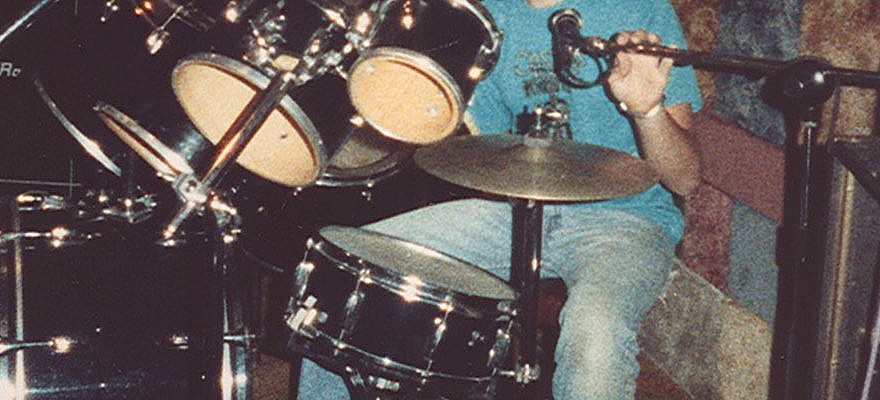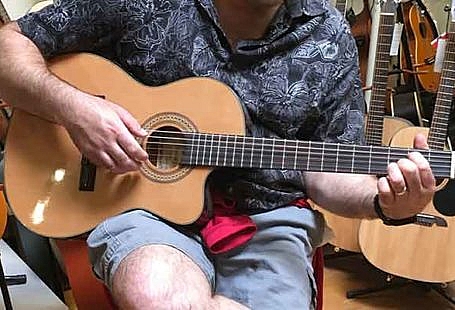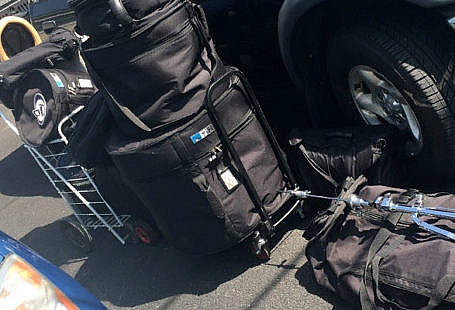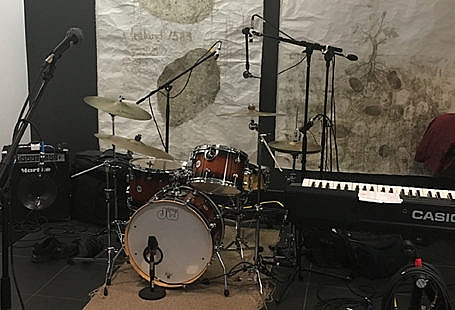While I can wax nostalgically about my formative years as a young musician, one thing that I find regrettable was that “the culture of the day” was very competitive and critical.
It was the second half of the 1980s and hard rock was en vogue, and so was posturing and going about your business with a sense of arrogance. The prevailing thought among a lot of groups when talking about their peers was, “This band sucks! We blow them away!”
I never was comfortable with that. I always preferred camaraderie among musicians, not competition. Still do! But, still, that was the way it was back then and I wasn’t immune to it because that’s the culture we lived in. I was reasonably good about supporting other people’s stuff, but I certainly was concerned about what other musicians would think of me.
My early days as a drummer were rife with insecurity. A lot of it had to do with the fact that I was self-taught and always assumed—probably wrongly—that the “schooled drummers” who had taken lots of lessons or worked on their rudiments on drum pads were way better than I was. I was concerned that people would see me as a fraud or a faker. An imposter in their world.
“It’s an easy platitude to lean on by saying, ‘Who cares what other people think,’ but when you’re doing something that’s really important and you’re trying to find your footing in a new world, you do care.”
What didn’t help, of course, was the aforementioned prevailing attitudes that people had about being the top dog. “I blow this guy away! He sucks!” It was an awful way to approach making music.
I suppose I had a weird quiet confidence of sorts in that I kind of knew that I could do what I did well… but I didn’t know if what I did was enough. I was completely unconfident that I’d be able to convince other people that I knew what I was doing. It’s an easy platitude to lean on by saying, “Who cares what other people think,” but when you’re doing something that’s really important to you (hello, music!) and you’re brand new and trying to find your footing in a new world, you do care. Most of us, anyway. I did.
I should make it clear that with this next statement I’m not trying to suggest I was a prodigy or something. Definitely not! But I did have a natural propensity towards drumming that made it come somewhat easily to me, and, ironically, that didn’t help but instead fueled my insecurity about it. Day one of sitting behind a drum set was me playing enough of a beat that I could have some fun with it and play something that loosely sounded like music. I didn’t spend 3 years playing paradiddles on a rubber pad with traditional grip. So what I did came easily enough to me that I assumed I must be a fraud and that the other players had to know so much more than I did.
Later, when I was in college, I did do some studying under a teacher—half to help build my much-in-need-of-improvement confidence and half so I could get a key to use the drums in the practice rooms on campus. And that “imposter syndrome” thinking came right out on day one. I introduced myself to my teacher and told him my background, saying, “I’ve been playing for a number of years now, I play in bands, I play clubs… but you may hear me play and tell me I’m doing it all wrong and that I don’t know what I’m doing.”
Thankfully, he was a great teacher right from the start, responding to my comment by saying, “Well, no, we’re never going to say you don’t know what you’re doing. If we see things we can improve, we will.” Very welcoming, very encouraging, very accepting. But, somehow, I thought that when I took a stick and hit the head of a drum, it might have been different than what every other drummer does… even though I had the benefit of eyes and ears that should have been enough to tell me otherwise.
Some of these problems were probably my own, no doubt. Other people talked the talk despite whether they could or couldn’t walk the walk. I, to a flawed degree, probably walked the walk well enough, but couldn’t talk the talk at all.
And yet at the same time, I know the culture of the day affected things, because we expected others and ourselves to be good. Great, even. It was the era of the rock star.
But here’s where it gets really freaking weird for me. I always wanted to drum, but I didn’t have money for drums. When I was 16, I finally was in a situation where I had access to some old broken pieces of a drum set and could kind of start playing. And one year later, by age 17, I was playing shows, doing original music, and playing at clubs where some of my musical heroes on major label acts were playing on other nights in the good slots. That’s pretty freaking cool, if you ask me, and would be a major accomplishment given the situation, even if our nascent playing was underdeveloped (which it was). But even if none of that were true…
Why on earth would anyone expect us to be any fucking good at all? Why would we put any kind of pressure on ourselves to live up to some accomplished standard? We were babies! “How long have you been playing?” “Oh, about 9 months… maybe 10. I forget.” (! ! !)
In hindsight, it seems patently obvious that the stakes shouldn’t have been that high. But when you’re in it—and you’re a high schooler with no real perspective on time—it doesn’t seem that way at all.






2 comments On Baby Musicians
I enjoyed it, but then I always enjoy reading what you wrote.
Thank you, Lisa! That means a lot!